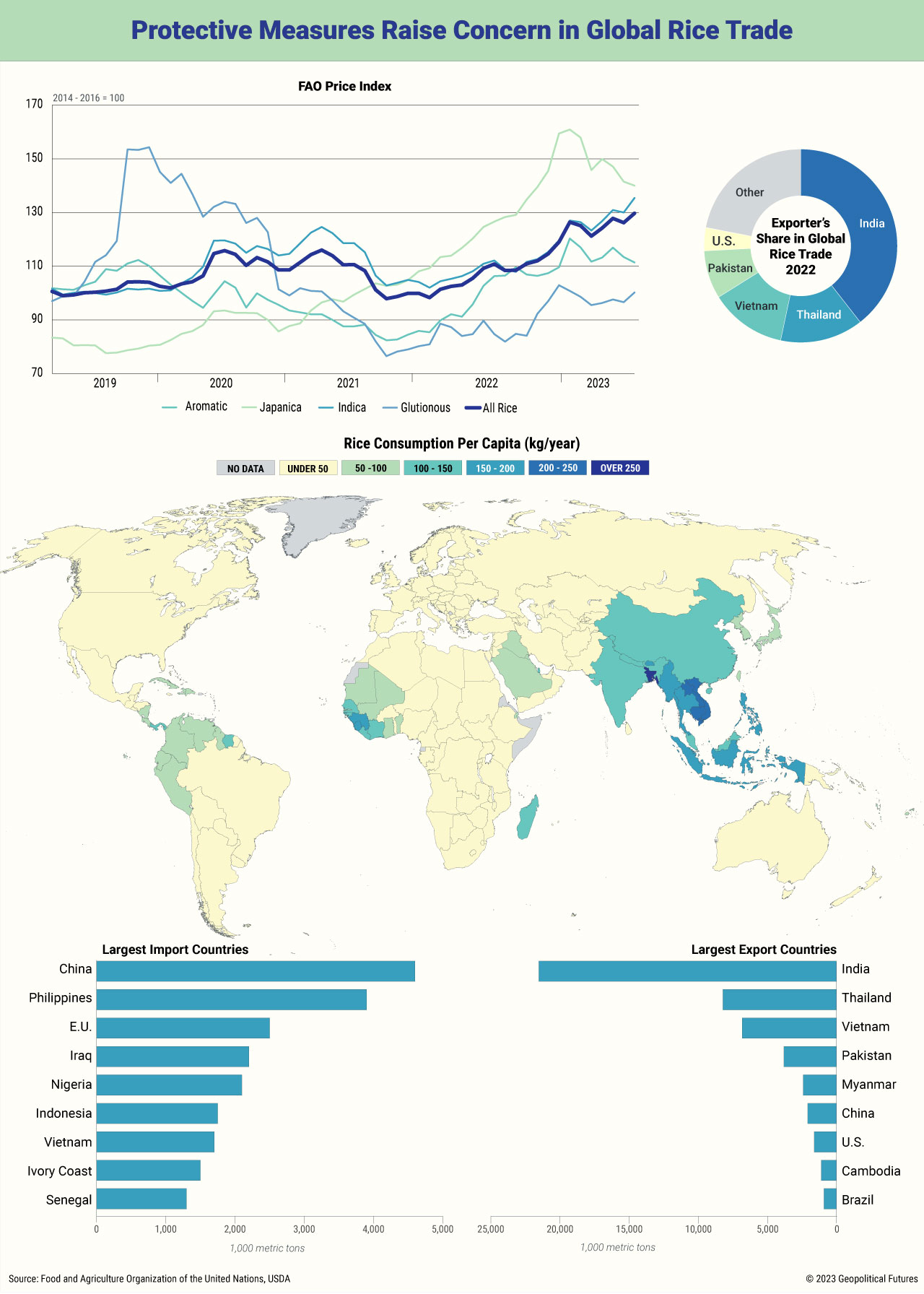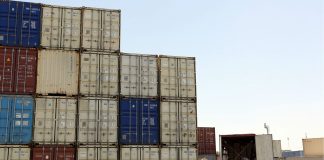On July 20, three days after Russia pulled out of the Black Sea grain deal, India opted to impose restrictions on the export of non-basmati white rice. India’s rationale for these restrictions was well-founded: Due to droughts and water scarcity stemming from the convergence of El Nino and the monsoon season, domestic rice prices had climbed to $650 from $550 per metric ton, instilling concerns about a rice shortage. India is the world’s largest rice exporter, having accounted for about 40 percent of global rice trade last year. Despite India’s continued export of parboiled and basmati rice, global food prices have surged by 15-25 percent since the ban. Given the heightened vulnerability of paddy in Asia to El Nino, concerns have begun to grow in other major rice-producing and exporting countries in the region. Some of these countries have even started creating stockpiles in anticipation of a potential shortage.
India’s ban on rice exports has far-reaching consequences, especially for nations heavily dependent on its rice supply. Many countries across Asia, Africa and the Middle East rely on Indian rice imports to fulfill their food requirements. The brunt of this impact is borne by impoverished countries such as Nepal and Bangladesh, as well as African nations including Benin, Senegal, Togo and Mali, all of which predominantly import broken rice. The sudden rupture in supply could lead to food scarcity, prompt steep price hikes and even incite unrest in these regions. For instance, in Nepal, rice prices have surged by 16 percent since India’s announcement of the restrictions.
A shortage of rice could spill over to affect wheat, soybeans and corn, all of which frequently stand in as substitutes for rice, serving both human consumption and livestock feed needs. Cascading shortages of these commodities could also drive up prices for fuel. Thailand, a significant rice exporter and a purveyor of high-quality rice, has stepped in to fill the void left by India’s export ban. This shift has precipitated a surge in Thailand’s rice exports and has given its economy a boost. However, it also underscores the fragility of the global system of food trade.





